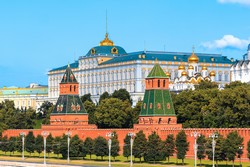Differences in international law between Russia and the west
An EU-funded project comparatively examined the relationship between the west and Russia, particularly on their positions on international law. Researchers also aimed to provide theoretical evidence on how non-liberal states understand and practice international law, and if they 'behave worse' than liberal states. The project's main outcome revealed that Russia has a partly different concept of international law in comparison to the western mainstream. Indeed, state sovereignty and collectivist values are preferred over human rights and individualist values in the international setting. This is directly tied to the history of constitutionalism and public law in Russia, where international law was not applicable to its citizens during the Soviet period. INTLAWRUSSIA (International law and non-liberal states: The doctrine and application of international law in the Russian Federation) also found variations of the Russian approach to international law depending on its relationship with Europe and the west during that period. This was illustrated through studies of discourse on international law, mostly during the Tsarist period. The long authoritarian history of the country didn't allow the scholarship to develop freely from the state power and so, international law is understood as a power of the state. The 1945 UN Charter is viewed as a definition of Russia's global power and any changes to it would constitute violations of international law in Russia. Therefore, the country's participation in the Council of Europe and the European Convention on Human Rights was deemed an anomaly. Concerning the theoretical dimension of the project, researchers took a constructivist rather than a liberal-dogmatic approach. Instead of characterising Russia's approach to international law as determined by liberal or illiberal tendencies, it's better to link it to Russia's practice of domestic rule of law. Russian scholars' criticism that the country is shaped by the phenomenon of 'legal nihilism' is also relevant to the study. For the purpose of the study, interviews were conducted with Russian judges, politicians and legal academics in order to get a more nuanced and realistic point of view. The main results of the project were published in the monograph 'Russian Approaches to International Law: An Interpretation of History, Theory and Recent State Practice', from Oxford University Press.



